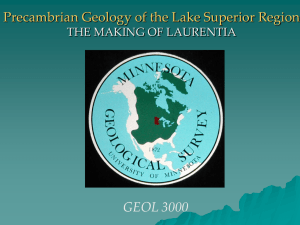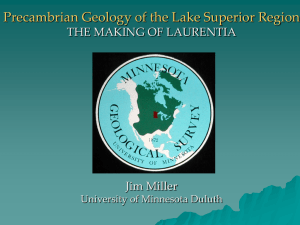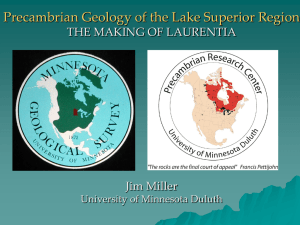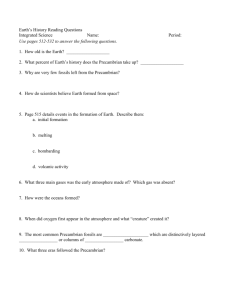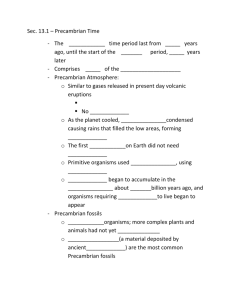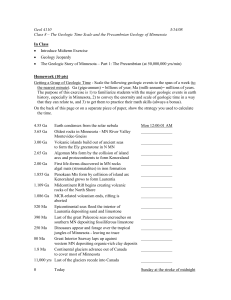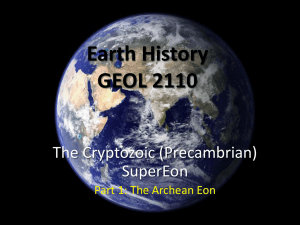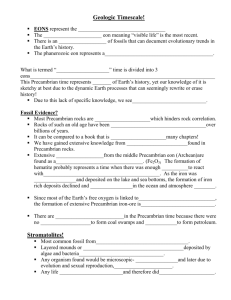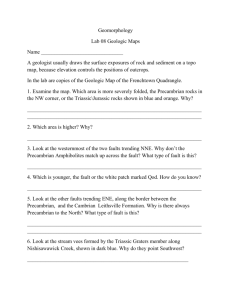Value of Water Well Drilling Data in Understanding the Precambrian Geology of Northeastern Minnesota
advertisement
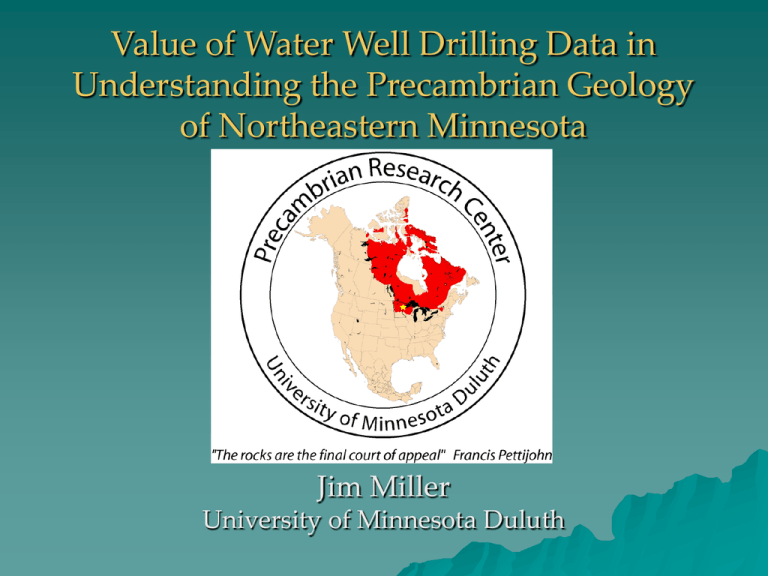
Value of Water Well Drilling Data in Understanding the Precambrian Geology of Northeastern Minnesota Jim Miller University of Minnesota Duluth Precambrian Bedrock Geology of NE MN The Geologic Record in Minnesota LAURENTIA KENORALAND Terrane 2: The Superior Province (GraniteGreenstone Terrane) 2.7-2.5 Ga GREENSTONE Metamorphosed Basalt Flows Pillowed Structures indicative of submarine eruption SEDIMENTARY ROCKS BANDED IRON FORMATION GRAYWACKE GRANITE Crystallized from Magmas intruded into the crust The Superior Province Multiple Accreted Terranes TECTONIC MODEL FOR THE SUPERIOR PROVINCE Accretion of Island Arcs, Oceanic Plateaus, and Protocontinents Terrane 3: The Penokean (and Yavapi and Mazatzal) Orogen 1.9-1.6 Ga Making Laurentia MESABI-TYPE IRON FORMATION Geologic Marker of a Major Evolutionary Event Penokean Orogeny 1.85 Ga Thomson Dam Eveleth St. Cloud Penokean Mountains (1.85 -1.75 Ga) Terrane 4: The Midcontinent Rift 1.1 Ga An Attempt at Unmaking Laurentia MIDCONTINENT RIFT A 1.1 Ga attempt at continental separation Gabbro Sandstone Basalt Precambrian Geology of Minnesota Direct Evidence: OUTCROP Glacial “Overburden” Indirect Evidence: GEOPHYSICAL DATA More Direct Evidence: DRILL CORE Image from Dale Setterholm, MGS Location of core hole Drill core 1st vertical derivative of aeromagnetic data Drill hole locations provided by Minnesota Department of Natural Resources, Division of Lands and Minerals, Hibbing 2002 Even in Areas of “Good” Outcrop Bedrock Information is Sparse Usefulness of (well located) Water Well Drilling Information to Precambrian Geology - Depth to bedrock info - General rock descriptions - Well chip samples Helpful Crystalline Rock Descriptions in Water Well Logs Color – can be a good indicator of minerals in the rock Coarseness – can individual mineral be seen with the naked eye? Internal Fabrics – layers, bands, laminations Fragment Shapes - irregular chunks, thick flakes, thin flakes Usefulness of Water Well Rock Chips The Precambrian Research Center at UMD
